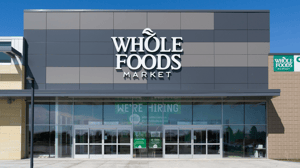Analysts bearish on natural retailersAnalysts bearish on natural retailers
Deflation, conventional competition absorbing market growth

Citing a combination of competition from conventional stores, choppy consumer sentiment and prolonged deflation in fresh foods, analysts have muted expectations shopping basket produce for the financial results of publicly traded natural food retailers, which will soon be announced.
Natural Grocers by Vitamin Cottage will release its first-quarter financial results following the market close on Thursday. Whole Foods Markets reports its first quarter results on Feb. 8, and Sprouts Farmers Market will report its fourth-quarter and full-year results Feb. 23.
While there have been some indications that the broader market has improved recently — including a rise in consumer sentiment in the reporting period and a stock rally since the election — a survey of natural/organic store managers conducted by Wolfe Research indicated performance at natural food stores may have worsened since Thanksgiving as conventional stores and other competitors have absorbed the growth in the natural and organic market.

That, said Wolfe analyst Scott Mushkin, could result in slower new store growth for the once fast-building trio.
“In speaking with industry participants, it seems that competition remains intense while pricing remains under pressure,” Mushkin said in the report, released this week. “At this stage, it is hard to see the industry conditions changing any time soon. We would anticipate that companies such as Whole Foods, Sprouts and Natural Grocers may need to curtail store growth as ROIC continues to slip.”
According to the Wolfe survey, the percentage of natural and organic store managers who noted consumer spending had improved in their stores fell to 45% when polled in mid-January, down from 53% when asked the same question in mid-December. Those managers also said fewer customers were willing to purchase discretionary items than they were the last time they were asked.
Managers for value-focused stores like Sprouts in the meantime said consumer sentiment and willingness to trade up remained at about the same levels in January as in December, but indicated store traffic may have slowed.
Analyst Christopher Mandeville of Jefferies said he found little reason to anticipate sales trends for Natural Grocers have meaningfully improved since officials acknowledged comp sales was running at the low end of -1% to 1% guidance in late November. Mandeville cited organic produce deflation and heightened promotional activity from competitors.
Sprouts has been vulnerable to investor concerns over produce deflation in recent months, with stock trading near 52-week lows. Analysts like Mandeville and Mushkin this week cited concerns that its price advantages have eroded as conventional stores become more promotional on produce as a means to drive traffic.
About the Author
You May Also Like






